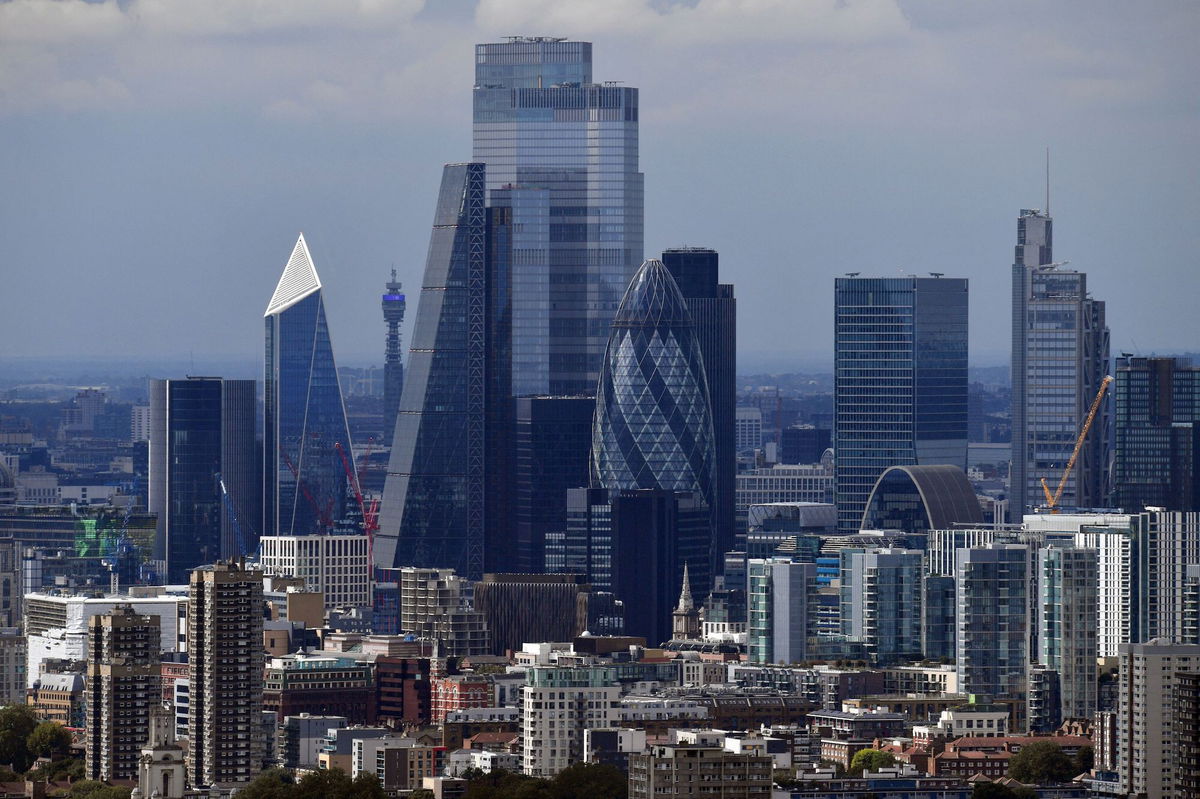Moody’s lowers UK’s outlook to negative

The skyline of the city of London is seen here on September 2. Moody's Investor Service on October 21 changed the United Kingdom government's ratings outlook to "negative" from "stable."
By Hanna Ziady, CNN Business
Moody’s Investor Service on Friday changed the United Kingdom government’s ratings outlook to “negative” from “stable.”
Moody’s attributed the change in the outlook to “heightened unpredictability in policymaking amid weaker growth prospects and high inflation; and risks to the UK’s debt affordability from likely higher borrowing and risk of a sustained weakening in policy credibility.”
However, the ratings agency affirmed the country’s credit rating. The affirmation of the Aa3 rating is a reflection of the UK’s economic resilience, Moody’s said in a statement.
Credit ratings are essentially credit scores for governments and companies. They express an opinion about the capacity and willingness of large borrowers to repay their debts. Germany, Canada, Switzerland, Australia and the United States have some of the best credit ratings in the world, while Argentina, Nigeria, Pakistan and India have some of the lowest ratings.
The UK is in the midst of suffering from a string of blows to its economy, which the Bank of England has said may already be in recession. Soaring food costs drove the annual rate of inflation to 10.1% in September, returning it to July’s 40-year high.
That may prompt the central bank to hike interest rates more aggressively when it meets on November 3 in order to tame rising prices.
Political and economic turmoil
On Thursday, Liz Truss resigned as Prime Minister after six disastrous weeks in office. Truss and former Finance Minister Kwasi Kwarteng’s “mini” budget upended UK financial markets. Investors immediately rejected their plans for unfunded tax cuts, spiking government bond yields, sinking the pound and forcing the Bank of England to make three successive interventions to rescue overstretched pension funds.
While most of those measures have since been rescinded by Britain’s new Finance Minister Jeremy Hunt — calming markets and restoring a sense of stability — the government’s credibility has been damaged and volatility could persist.
As well as driving up borrowing costs for the government and adding pressure to public spending, any credit ratings downgrade would only weaken investor appetite for UK assets.
The last time Moody’s downgraded the United Kingdom’s credit rating was in October 2020, citing lower than expected growth following Brexit, rising government debt and a weakening of the UK’s institutions that it said had led to a “fractious policy environment.”
— Julia Horowitz and Alicia Wallace contributed to this report.
The-CNN-Wire
™ & © 2022 Cable News Network, Inc., a Warner Bros. Discovery Company. All rights reserved.